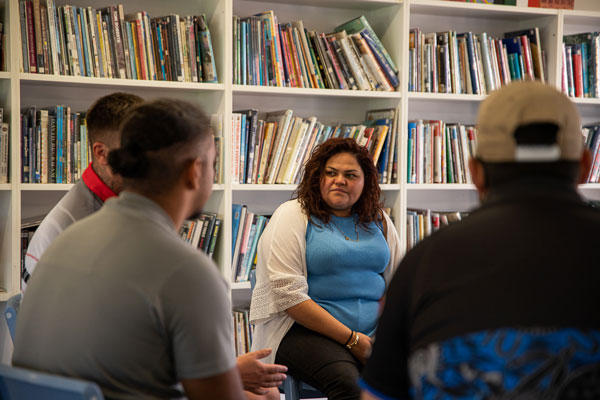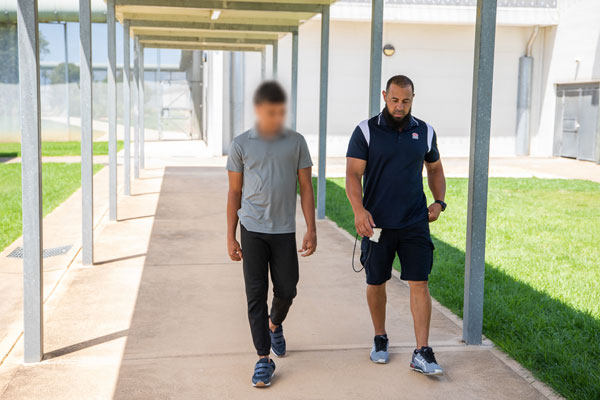Automatic language translation
Our website uses an automatic service to translate our content into different languages. These translations should be used as a guide only. See our Accessibility page for further information.
Ead, Antony and Alana tell us what they love about working in Youth Justice at the Department of Communities and Justice (DCJ).
Video transcript: Why is Youth Justice a great place to work?
"Being a Youth Officer can be challenging, but on the other hand, it is very rewarding."
- Amy, Youth Officer, Youth Justice

Youth Officers supervise young people in custody and ensure their needs are met on a daily basis by practicing pro-social modelling and motivating young people to participate in day-to-day activities, while maintaining the safety and security of the centre. The activities include educational, vocational, recreational, and therapeutic programs which are guided by individual case plans. They encourage young people to participate in case plan goals, programs, and activities.
Youth Officers ensure young people are treated fairly and with dignity. They supervise young people to ensure their physical and psychological wellbeing is maintained.
They maintain safety, good order, and security by being proactive and making risk-based decisions by de-escalate situations, negotiate, and provide support to young people. Youth Officers deal with a diverse range of challenging behaviours however by demonstrating and encouraging pro-social behaviour they help to maintain a safe and secure environment
Preparing and maintaining a range of operational and case management records and reports as well as ensuring strategies and actions are recorded accurately is an important part of this role.

5 weeks of full-time training to prepare you for entry-level duties.
Youth Officers work as part of a multidisciplinary team made up of Caseworkers, Psychologists and Centre Management Team members as well as develop productive work relationships with colleagues and stakeholders.
Working either a 24/7 rotating shift roster or as a day worker, the operating environment requires Youth Officers to be proactive in managing and assessing risk, and responding to challenging behaviours to maintain a safe workplace.
Youth Officers work across Youth Justice centres in Grafton, Wagga Wagga, Dubbo, Sydney and Gosford.
Youth Justice NSW is part of the Child Protection and Permanency, District and Youth Justice Division under the Department of Communities and Justice. Youth Justice supervises and provides custodial and community-based services for young people, encouraging them to make positive changes to their behaviour and build their skills to reduce their risk of reoffending.
Youth Justice provides services to various communities across the state, making it important to have a diverse and inclusive workforce that contributes to safer outcomes for our communities.
Aboriginal and Torres Strait Islander people make a significant impact to the organisation by improving the way we interact with Indigenous communities and help inform and shape cross-cultural services. DCJ offers Identified Youth Officer roles that focus on working with the Aboriginal and Torres Strait Islander youth in our care.
24 Aug 2023